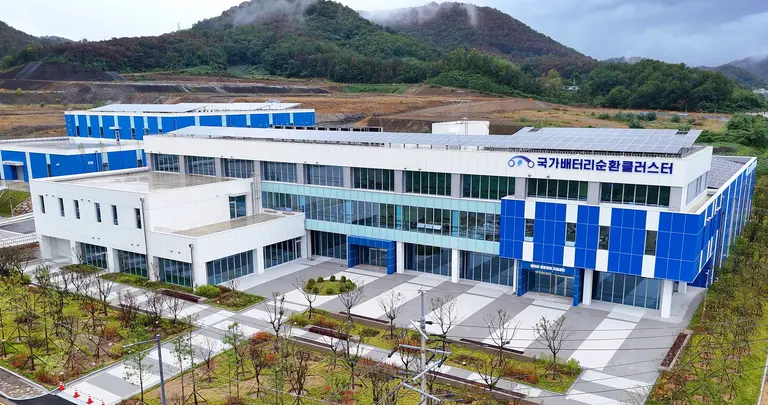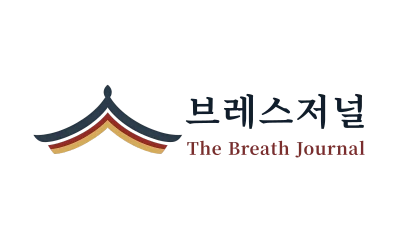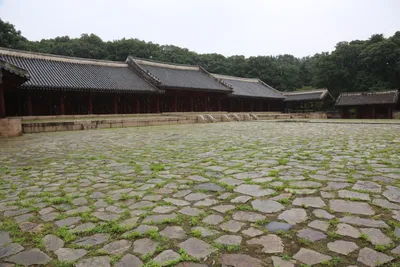
On November 4, the National Battery Recycling Cluster opened in the Blue Valley National Industrial Complex in Pohang, Gyeongbuk. This facility, with an investment of 48.9 billion won, is a key hub of the circular economy that transforms waste batteries into high-value resources, going beyond a simple recycling center.
With the advent of the electric vehicle era, solutions to the rapidly increasing waste battery problem are now in full operation. According to the Ministry of Environment, the domestic waste battery output from electric vehicles is expected to reach about 32,000 units in 2025 and 80,000 units by 2029. If left unattended, these waste batteries can cause soil contamination and fire hazards, but with appropriate technology, they can become treasure troves that recover over 95% of key minerals such as lithium, nickel, and cobalt.
Turning Crisis into Opportunity, Waste into Resources
The newly opened National Battery Recycling Cluster spans 17,000 square meters and is equipped with demonstration research equipment capable of performing the entire process from performance evaluation of used batteries to black mass production and precious metal extraction. Notably, the goal is to increase the lithium recovery rate from the current 80% to over 95% and the purity from 99% to over 99.5%.
Kim Go-eung, Director of the Resource Recycling Bureau at the Ministry of Climate, Energy and Environment, stated, "Battery recycling is a future strategic industry for securing a stable supply chain of key minerals," and added, "We will spare no technical and policy support tailored to the needs of businesses through the National Battery Recycling Cluster."
Starting next year, a 'Recycled Raw Material Production Certification System' will be piloted. This system certifies that nickel, cobalt, and other materials used in battery production are recovered from used batteries, which is expected to be an important foundation for revitalizing the circular economy.
Environmental and Economic Value Created by the Circular Economy
Recycling waste batteries is a solution that can achieve both environmental protection and economic growth. According to SNE Research, the global waste battery recycling market is expected to grow to 60 trillion won by 2030 and 200 trillion won by 2040. At the same time, battery recycling can significantly reduce carbon dioxide emissions, contributing to the achievement of carbon neutrality goals.
For our country, which has a high dependence on foreign sources for key minerals such as lithium, nickel, and cobalt, recycling waste batteries is also important for resource security. The German recycling company Duesenfeld has already succeeded in recycling 96% of lithium-ion batteries, and domestic companies are also enhancing their technological competitiveness, such as SK Eco Plant developing technology to recover 97% of nickel and cobalt.
Pohang as the Center of the Battery Circular Economy
Lee Gang-deok, the mayor of Pohang, stated, "The opening of the National Battery Recycling Cluster is a historic moment for Pohang to become the forefront of Korea's battery circular economy," and added, "We will build a circular economy ecosystem that coexists with businesses, universities, and research institutions to create a new growth model for the K-battery resource recycling industry."
Pohang City plans to create a resource recycling ecosystem that encompasses the entire reuse and recycling industry by linking the already established Comprehensive Management Center for Secondary Batteries and the Inline Automatic Evaluation Center for Electric Vehicle Batteries. In December, an additional Inline Automatic Evaluation Center for used batteries will open, significantly increasing the daily processing capacity from 1 unit to 150 units.
A Choice for the Future, Circular Economy
While electric vehicles are gaining attention as an eco-friendly alternative, the issue of waste battery disposal could pose another environmental threat. However, the opening of the National Battery Recycling Cluster is becoming an important turning point in transforming this crisis into an opportunity.
Instead of landfilling or incinerating waste batteries, a circular system that recovers key minerals with advanced technology and utilizes them for new battery production is being established. This goes beyond efficient resource utilization to build a sustainable industrial ecosystem for future generations.
As the era of electric vehicles is fully underway, attention is drawn to the outcomes of the battery circular economy experiment that started in Pohang. This journey of transforming waste into resources will be an important first step toward the circular economy society we envision.

![[Scenario] 2026 Global Wildfire Calendar: The Unending Cycle of Flames](https://cdn.breathjournal.com/w400/q80/article-images/2025-10-01/83cbd0d7-c7c9-4101-b4f6-e39cff028d87.png)

![[Focused Planning] 2026 Global Wildfire Calendar, Facing a Charred Future](https://cdn.breathjournal.com/w400/q80/article-images/2025-10-01/5be639f5-d684-4605-acb1-e0127c554e7c.png)

댓글 (0)
댓글 작성
댓글을 작성하려면 로그인이 필요합니다.
로그인하기